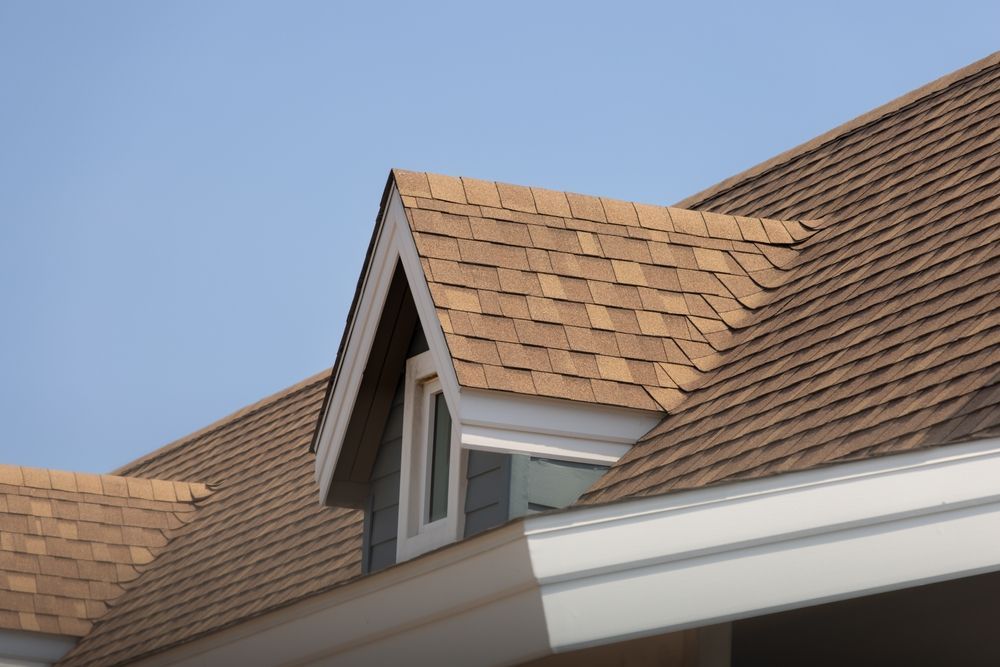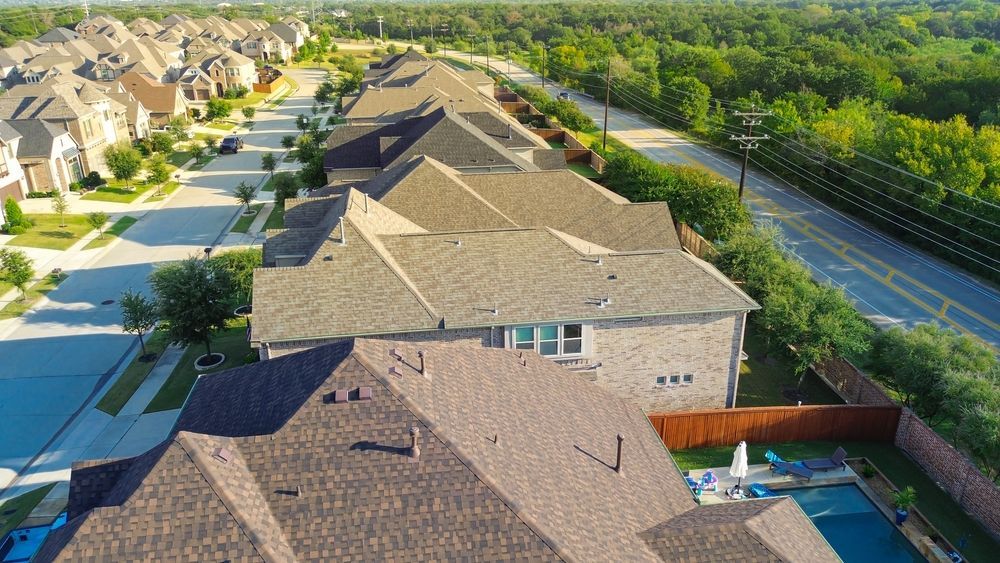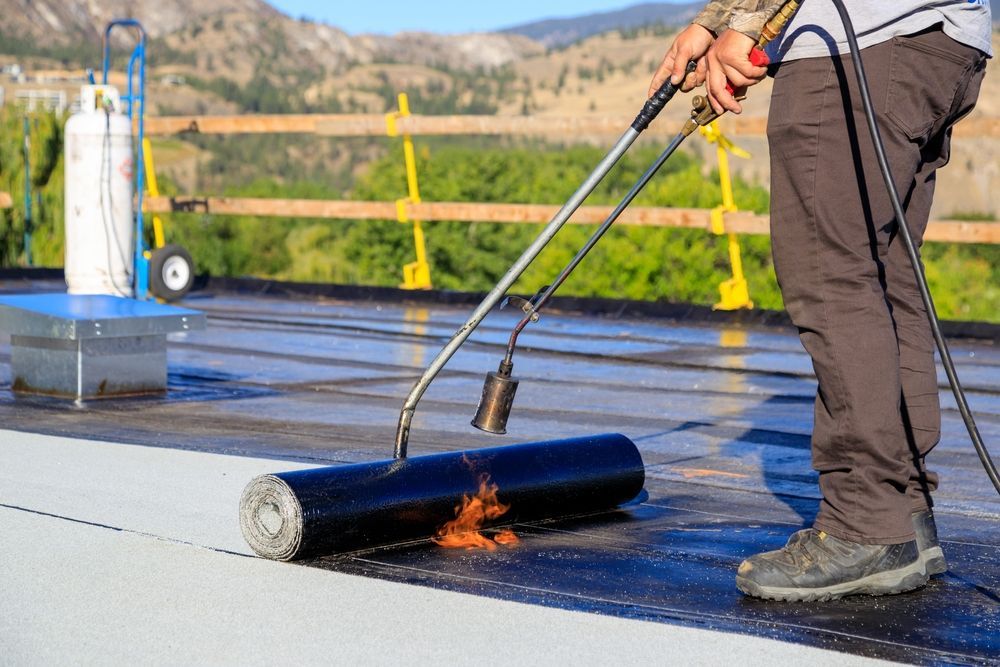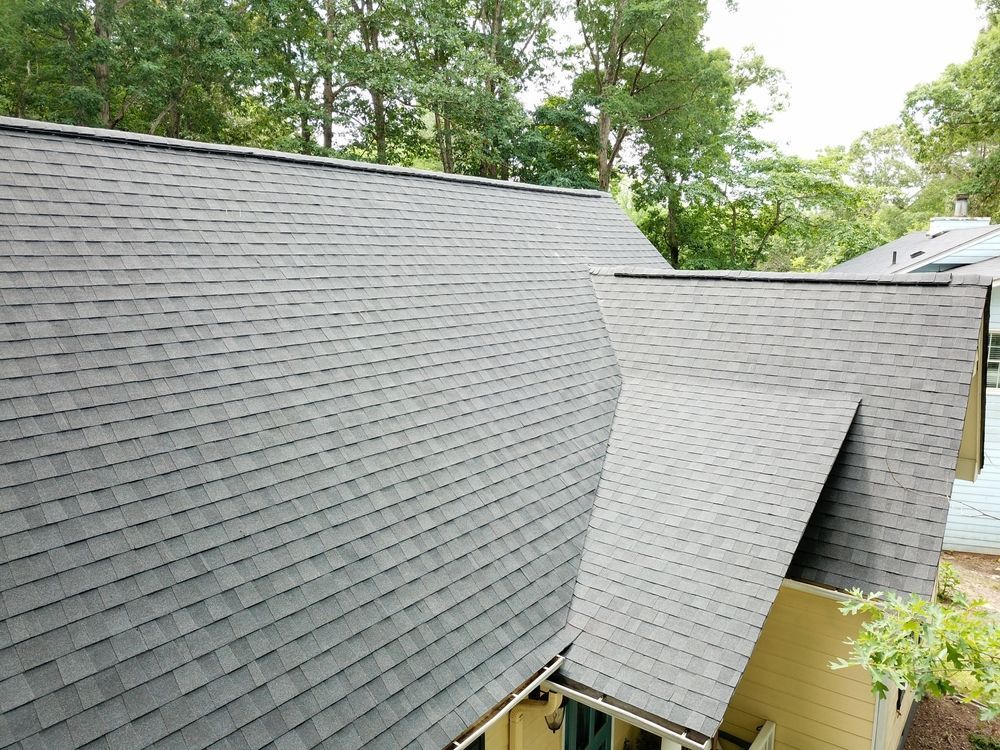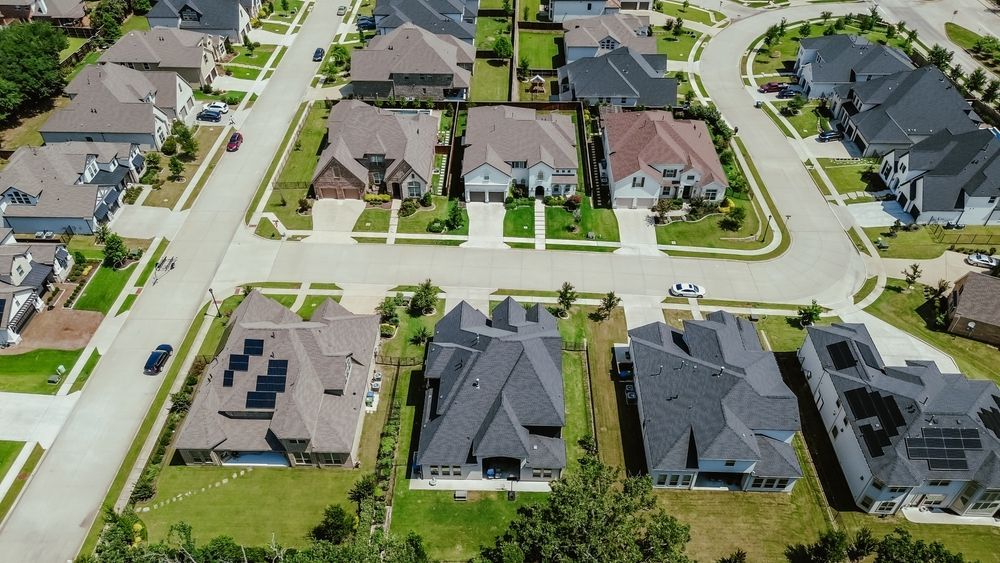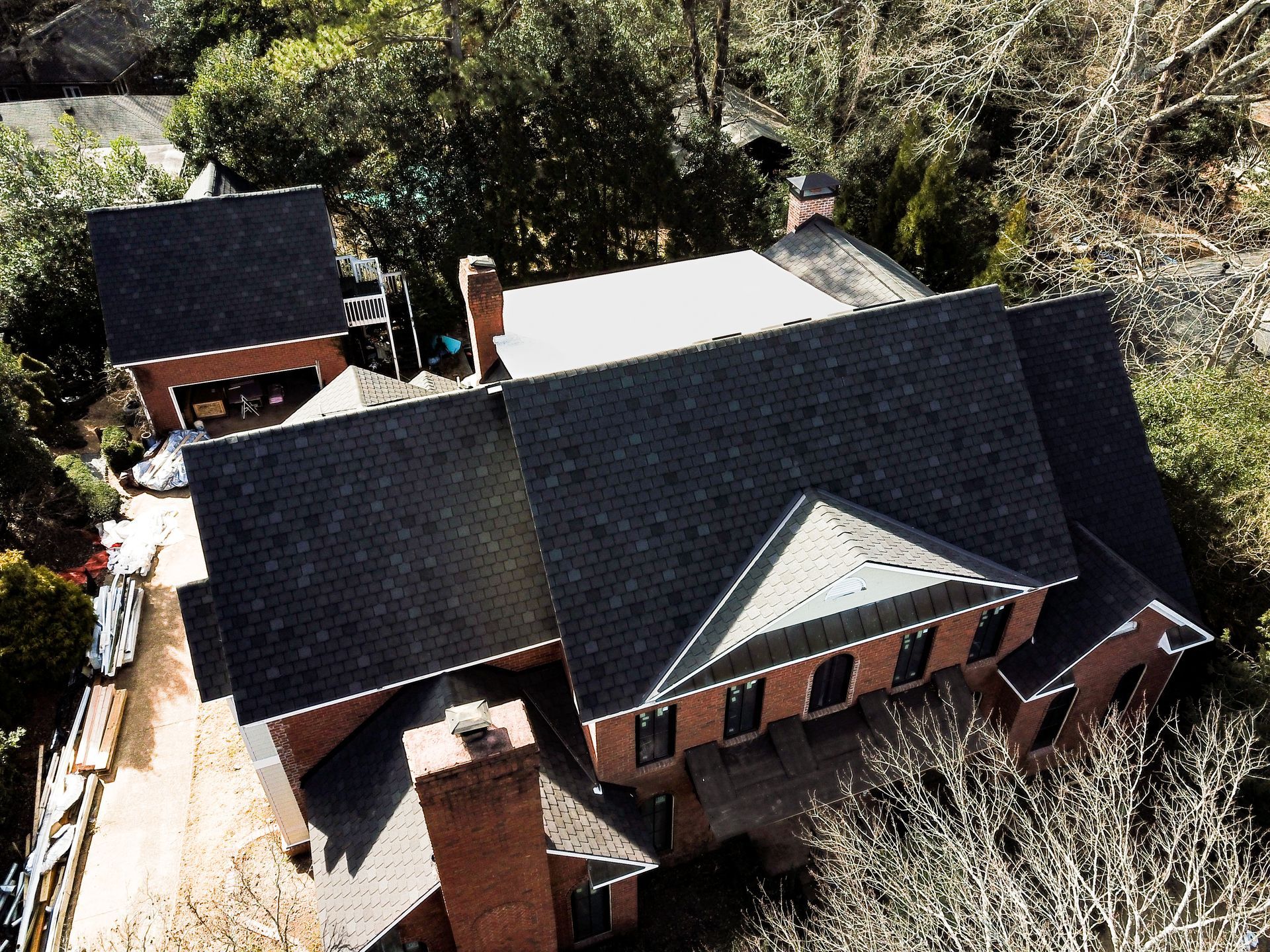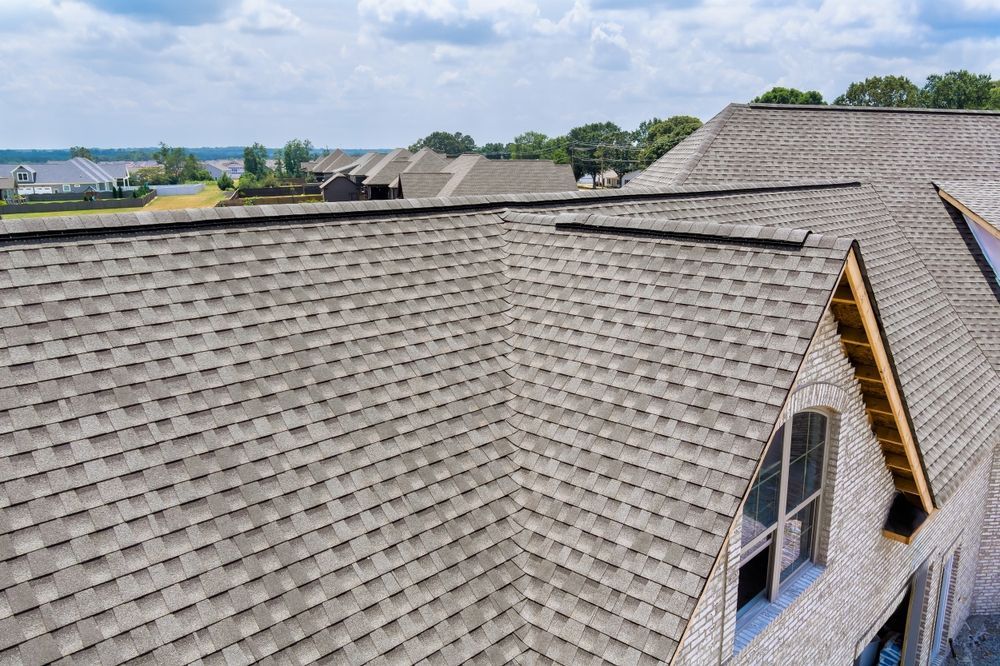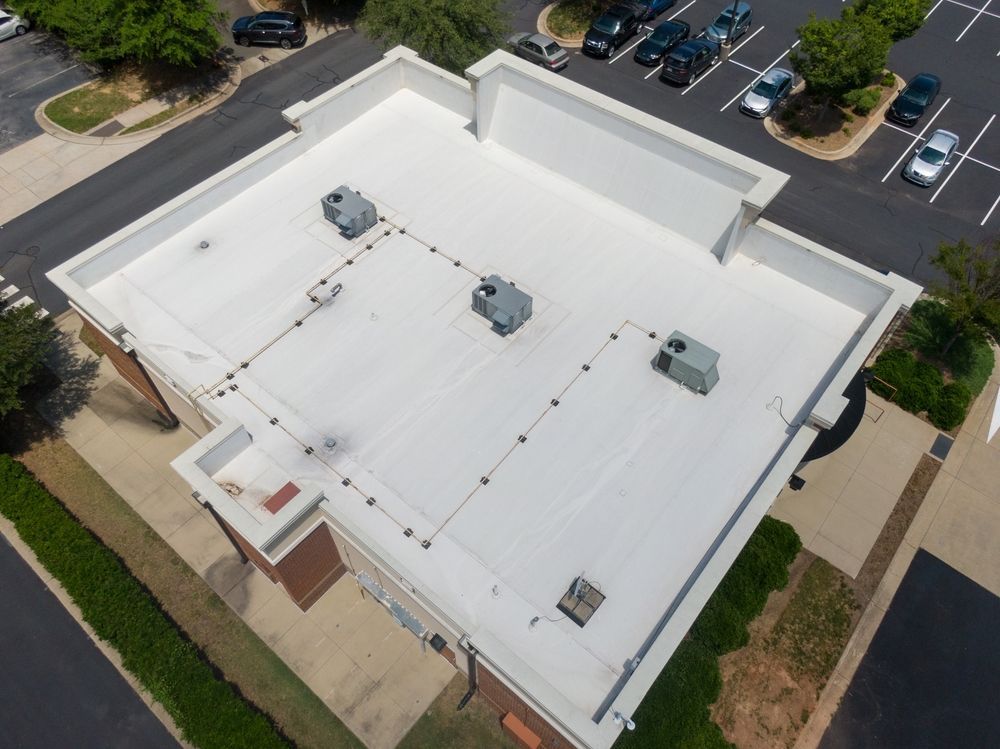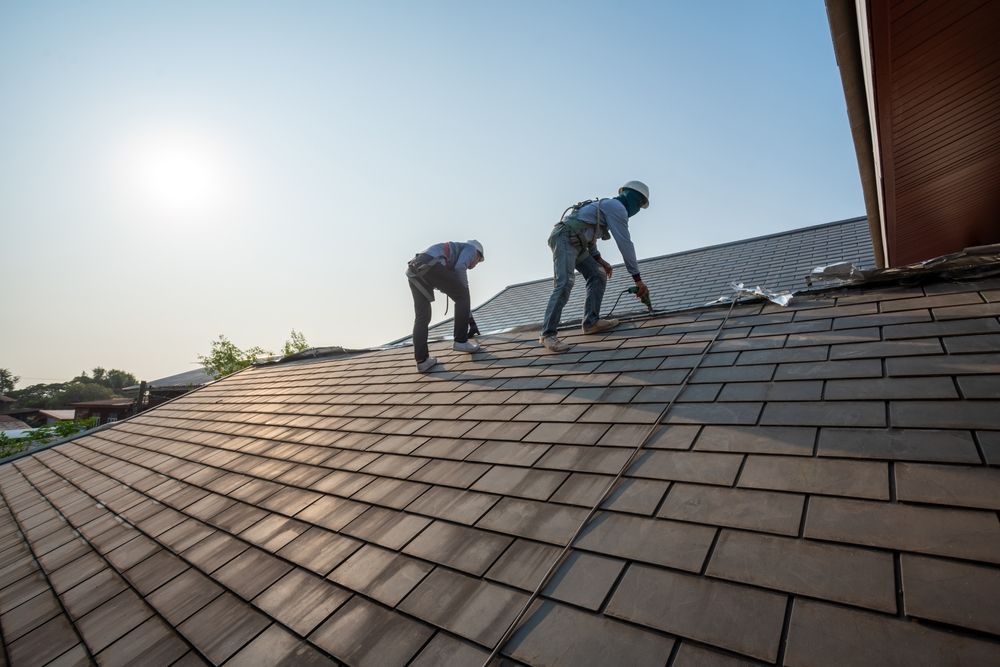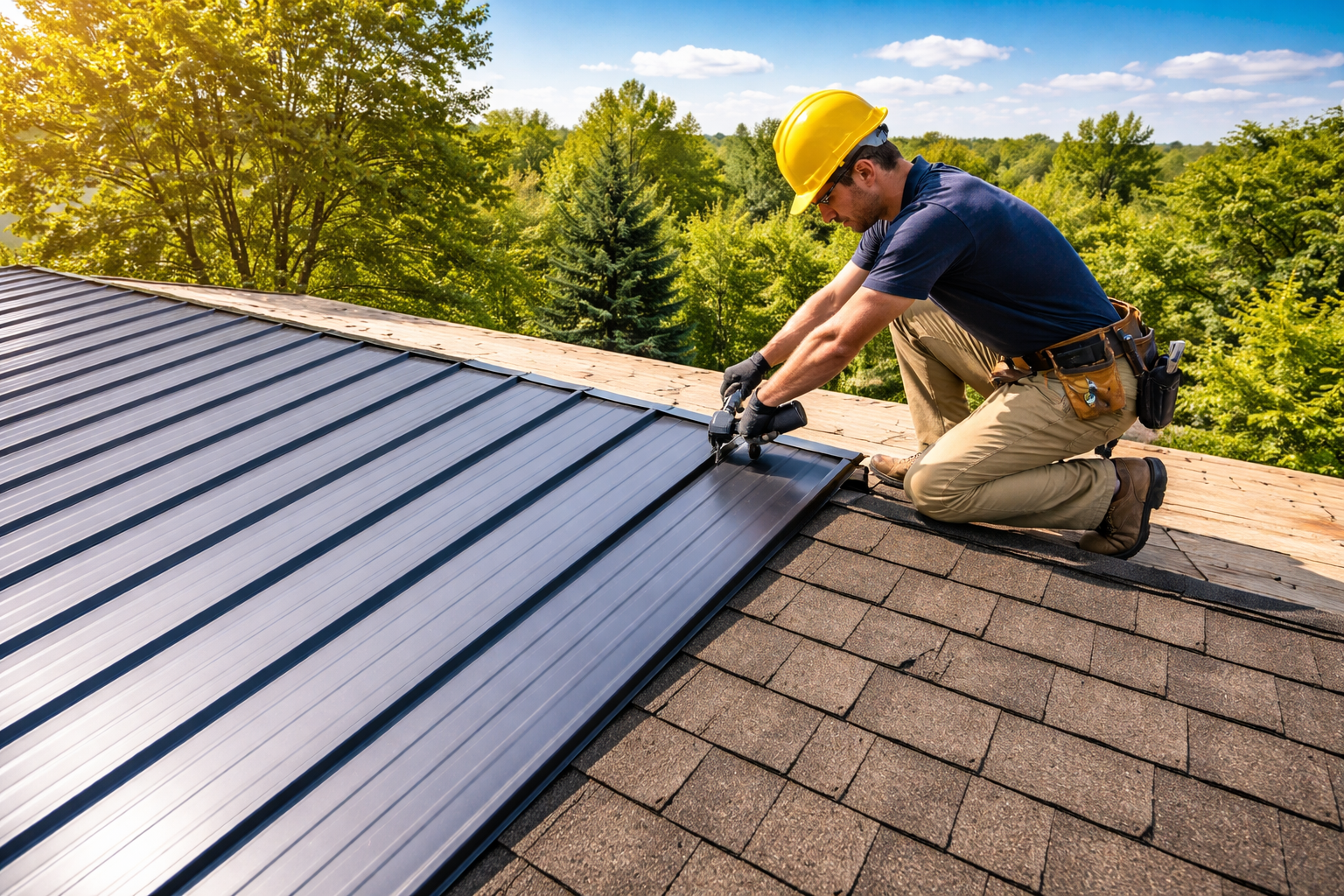Factors Influencing Roof Costs in Atlanta Needs
Comparing the Average Costs of Different Roof Types in Atlanta: What You Should Know
Did you know that the type of roof you have can affect the cost of replacement? If you didn't, don't feel bad. Not many homeowners are aware of this little fact. The architectural style of your home dictates the shape, angles, and pitch of your roof. This, in turn, can increase the cost of replacement, as can the style and material of tiles. Having a little background information on roof types vs. costs can help you budget correctly and find the right roofing company in Atlanta for your home.
Are you unsure about the costs associated with replacing your roof in Atlanta? Understanding the average expenses for different roof types can help homeowners make informed decisions. This article will cover key factors influencing roof replacement costs and provide average pricing for various materials. By reading this content, homeowners will gain valuable insights into budgeting for their roofing projects, addressing the common concern of managing such expenses effectively. Whether considering a new roof or needing repairs, this guide will offer essential information to alleviate your worries.
Understanding Roof Replacement Costs in Atlanta
Understanding roof replacement costs in Atlanta requires consideration of various factors, including the type of material used. The average cost for different roofing materials, such as shingles, tiles, or bitumen, can vary significantly based on quality and durability. For roof replacement projects, it's important to select the appropriate materials and consult with experienced professionals.
Homeowners should be aware that specific roof areas, like valleys, may incur additional expenses during replacement due to the extra materials and labor required. These areas are prone to accumulating moisture, meaning any underlying damages must be addressed to prevent future issues.
Insurance policies may cover some aspects of roof replacement, particularly if the damages result from severe weather or other covered events. Knowing the average costs can help homeowners assess how much they might need to contribute to out-of-pocket expenses after filing a claim.
Regular maintenance can also impact costs, as proactively addressing wear and tear extends the life of a roof. Homeowners who engage with a roofing contractor early can often avoid significant expenses associated with emergency repairs or full replacements later on.
Key Factors Influencing Roof Replacement Expenses
Analyzing different roofing materials, such as slate, provides insight into varying costs and durability. Roof size and complexity also play a significant role in calculations, while the pitch can affect pricing. Labor costs in Atlanta's roofing market, along with fees for permits and inspections, further shape overall expenses. Understanding these factors helps homeowners make informed decisions regarding roof replacement and assess potential depreciation risks.
Analyzing Different Roofing Materials and Their Costs
When assessing different roofing materials in Atlanta, factors such as initial expense, longevity, and maintenance requirements should be considered. For example, asphalt shingles often present a lower upfront cost but may require more frequent roof repairs over time due to susceptibility to mildew and weather-related damage. On the other hand, metal or slate roofs, while more expensive initially, can offer significant savings in the long run by lasting decades and minimizing the likelihood of costly repairs.
Understanding the specifics of a roofing contract is also key to managing replacement expenses. Homeowners should address any potential issues, such as underlayment and insulation, in the contract to avoid unexpected costs. Choosing the right materials not only affects the initial financial outlay but also influences future maintenance needs and the overall durability of the home’s protection against the elements.
Assessing Roof Size and Complexity in Cost Calculations
Assessing roof size and complexity is crucial when determining replacement costs in Atlanta. Larger roofs or those with intricate designs often necessitate additional materials and labor, leading to increased overall expenses. For instance, a roof with multiple pitches or features such as skylights and chimneys can complicate the installation process, heightening the risk of issues like leaks that can cause water damage inside the attic.
Moreover, the impact of severe weather, including strong winds, can amplify these costs. Unique roof designs may require more robust materials or additional reinforcements to withstand potential storm damage. This consideration is essential for homeowners looking to invest wisely in their roofs while providing lasting protection against the elements and reducing the likelihood of costly future repairs.
Evaluating the Impact of Roof Pitch on Pricing
The pitch of a roof significantly influences roof replacement costs in Atlanta. A steeply pitched roof may require specialized labor and additional safety measures, which can drive up overall expenses. In contrast, flat roofs generally demand different materials and techniques due to their low slope, affecting both initial cost and long-term maintenance, especially in humid conditions where water pooling can lead to wear and potential renovations.
Considering Labor Costs in Atlanta's Roofing Market
Labor costs play a significant role in determining the overall expenses associated with roof replacement in Atlanta. The expertise of an Atlanta roofing contractor can vary, impacting the market value of the services offered. When homeowners consider hiring a contractor, they should be aware that highly skilled professionals typically charge more but may provide superior workmanship, which can lead to fewer issues down the line. This choice becomes especially crucial for specific roofing projects that require specialized knowledge and experience.
Insurance companies often assess labor costs when evaluating claims for roof repairs or replacements, making it essential for homeowners to select contractors who offer a warranty on their services. A comprehensive warranty not only reflects the quality of work but also provides peace of mind regarding potential future repairs. Understanding how labor costs factor into the overall roof replacement can help homeowners budget effectively and help them get reliable service that adds lasting value to their property.
Examining the Cost of Permits and Inspections
The cost of permits and inspections is a critical factor in roofing replacement projects in Atlanta. These expenses are necessary for compliance with local building codes, which enhance the safety and durability of structures in the region. Homeowners should be mindful that engaging with a reputable contractor can facilitate the permitting process, giving them assurance that all requirements are met while reducing potential setbacks during installation.
In addition, the climate in Atlanta influences the types of roofing materials used, necessitating specific permits based on the chosen materials and their manufacturing guidelines. Factors such as insurance coverage also come into play, as some contractors may include the costs of permits in their overall pricing. Homeowners are encouraged to clarify these details at the onset to avoid unexpected expenses and provide a smooth roofing replacement experience.
Average Costs for Various Roof Types in Atlanta
As homeowners in Atlanta consider roof replacement options, understanding the average costs for various roof types is essential for informed decision-making. This section will cover the cost breakdown and benefits of asphalt shingles, the price range and durability of metal roofing, and the cost implications and aesthetic value of tile roofing. It will also explore flat roofing options, pricing, maintenance needs, and the costs associated with wood shingles and shakes, along with their sustainability factors. Insights on the roles of inspection and wear and tear, particularly in relation to popular brands like Owens Corning, will enhance the value of this comparison for customers.
Asphalt Shingles: Cost Breakdown and Benefits
Asphalt shingles are among the most popular roofing materials in Atlanta, primarily due to their affordability and ease of installation. On average, homeowners can expect to pay between $3.50 to $5.50 per square foot for asphalt shingles, depending on the specific product and brand chosen. Their resilience against storms and ability to complement various roof styles, including gable roofs, make them a favored option for many properties.
Beyond cost efficiency, asphalt shingles provide significant benefits, including a range of colors and styles that enhance the home’s aesthetic appeal. They also work well with additional features like skylights, making sure the roofing system remains durable and visually appealing. Regular maintenance can further extend the lifespan of asphalt shingles, making them a practical choice for homeowners looking to balance upfront costs with long-term value.
Metal Roofing: Price Range and Durability Considerations
Metal roofing has gained popularity among homeowners in Atlanta due to its durability and energy efficiency. The average cost for metal roofing typically ranges from $6.00 to $12.00 per square foot, influenced by factors such as material quality and design complexity. Investing in metal can enhance a property’s value, as these roofs last significantly longer than traditional materials, often exceeding 50 years with proper maintenance.
Additionally, metal roofs reflect solar energy, contributing to lower cooling costs and improved energy efficiency for properties in the Atlanta climate. Homeowners should consult qualified roofing contractors to gain insights on the best metal options for their specific needs and for professional installation. This proactive approach can help maximize the roof's lifespan while also addressing concerns about long-term maintenance and protection against the elements.
Tile Roofing: Cost Implications and Aesthetic Value
Tile roofing presents a substantial investment for residential roofing projects in Atlanta, typically costing between $10.00 to $20.00 per square foot for materials and installation. This price reflects the quality and durability that tile roofs offer, often lasting over 50 years with proper maintenance. Homeowners considering roof replacement should recognize that while the upfront costs are higher, the longevity and aesthetic appeal of tile can enhance property value and curb appeal effectively.
In addition to its cost implications, tile roofing creates a distinctive look that can elevate the architectural style of a home. With options ranging from clay to concrete tiles, homeowners can select materials that complement their design preferences while enjoying the benefits of energy efficiency and low maintenance. As homeowners assess their roof replacement needs in Atlanta, understanding the long-term advantages of tile roofing becomes essential for making informed decisions that align with both their budget and aesthetic desires.
Flat Roofing Options: Pricing and Maintenance Needs
Flat roofing options in Atlanta typically range in price from $3.00 to $6.00 per square foot, depending on the materials selected and the specific design considerations, such as roof pitch. While flat roofs may offer a cost-effective solution initially, they can require more frequent maintenance due to water pooling, which affects longevity. Engaging a qualified general contractor is essential for proper installation, so that building insulation is adequately addressed to prevent moisture issues that could lead to further repair costs.
When investing in flat roofing, homeowners should weigh the long-term benefits against the upfront price. Materials like TPO and EPDM offer good durability and performance, but proper maintenance is crucial to maximize longevity. Collaborating with experienced professionals can help establish a proper drainage system, which minimizes maintenance needs and extends the lifespan of a flat roof, leading to significant savings over time.
Wood Shingles and Shakes: Costs and Sustainability Factors
Wood shingles and shakes offer a balance of aesthetic appeal and durability, making them an attractive choice for homeowners in Atlanta. Generally, the cost for wood roofing ranges from $6.00 to $12.00 per square foot. When estimating roof replacement expenses, it is essential to factor in the longevity of wood materials, which, with proper maintenance, can last for several decades. This durability can play a significant role in securing home insurance, as many insurers recognize the long-term value and potential risk mitigation associated with quality roofing materials.
While wood shingles and shakes enhance the exterior beauty of a home, they require regular maintenance to preserve their performance, particularly around features like chimneys, which can be vulnerable to water damage. Homeowners should consider the frequency of maintenance when reviewing their roof replacement estimate, as neglect can lead to significant issues over time. Understanding these aspects allows homeowners to make informed decisions about their roofing options, helping them choose materials that align with both their budget and long-term housing needs.
Additional Expenses to Anticipate During Roof Replacement
Roof replacement in Atlanta often entails several additional expenses beyond the basic material costs. Homeowners should account for the cost of removing old roofing materials as well as unexpected repairs or structural issues that may arise. Installing features like skylights and providing proper ventilation can also affect the overall efficiency of the roof. Waste disposal fees must be considered, along with reviewing how an insurance policy may impact funding for these expenses. Understanding these factors enhances homeowners' preparedness and helps them budget effectively for their roofing project.
The Cost of Removing Old Roofing Materials
The cost of removing old roofing materials is an essential factor to consider during an Atlanta roof replacement. Homeowners may encounter fees ranging from $1.00 to $3.00 per square foot for the removal process, depending on the type of roofs and materials being discarded, such as asphalt shingles or tile roofs. Proper removal is crucial, as leaving behind old materials can lead to issues like mold growth, threatening the integrity of the new roof.
In some cases, additional challenges may arise during the removal process, potentially increasing overall expenses. For example, if there are underlying issues with the roof structure or mold present, further repairs or treatment may be necessary before installing the new roofing materials. Engaging a knowledgeable roofing contractor can help assess these situations promptly, allowing for an efficient Atlanta roof replacement while minimizing unexpected costs associated with removing old roofing materials.
Dealing With Unexpected Repairs or Structural Issues
Unexpected repairs or structural issues can significantly impact the overall cost of roof replacement in Metro Atlanta. As homeowners consider materials like CertainTeed shingles, it is essential to prepare for the possibility of underlying problems, such as rotting wood or damage to the roof structure, especially on gable roofs where water pooling may occur. Promptly addressing these issues is crucial to maintaining structural integrity and the longevity of the roofing system.
Homeowners may need to set aside additional funds as part of their home improvement budget to tackle these repairs. For instance, if water damage is discovered during the replacement process, it could extend the length of the project and require extra materials and labor. Being proactive and working with an experienced roofing contractor can help identify potential problems early, guiding homeowners toward solutions that protect their investment and provide peace of mind.
Installing Additional Features: Skylights and Ventilation
Installing additional features like skylights and ventilation can enhance both the functionality and aesthetics of a roof, but homeowners in Atlanta should be prepared for the extra costs involved. For instance, while skylights add natural light to a space, they may require significant modifications to meet local building code requirements and can impact the overall installation cost, especially if an asphalt shingle roof is present. Furthermore, homeowners need to factor in how these additional features may affect their insurance deductible in case damage occurs, such as from hail.
Effective ventilation systems are crucial in prolonging the lifespan of roofing materials and maintaining indoor air quality. Installing ventilation may involve additional expenses for ductwork and labor. Understanding these costs can help homeowners better assess the long-term value of their investment in roof features. By consulting with a qualified roofing contractor, homeowners can select the appropriate materials and features that align with their roofing type and enhance their property’s overall value.
Waste Disposal Fees and Their Impact on Overall Costs
The waste disposal fees associated with roof replacement can significantly impact overall costs in Atlanta. Homeowners should be prepared for these additional expenses, which can vary based on the type of roofing material being removed. For instance, removing a metal roof may incur different disposal fees compared to asphalt shingles due to weight and volume considerations, as well as local regulations regarding recycling and landfill disposal.
Engaging a knowledgeable roofing contractor can help mitigate these costs by providing transparency about disposal fees early in the project. A contractor with strong customer service can guide homeowners through the entire replacement process, including proper flashing and ventilation installation, so all aspects are efficiently managed. Understanding and accounting for waste disposal fees allows homeowners to budget effectively, reducing the likelihood of financial surprises during roof replacement.
Insurance Considerations and Possible Funding
Homeowners in Atlanta should be aware of how roofing insurance can help manage the costs associated with roof replacement. Many policies cover damages from severe weather, allowing homeowners to minimize out-of-pocket expenses when dealing with various roof types. It's essential for property owners to review their insurance policies thoroughly to understand what is covered and how much they may contribute after a claim.
Additionally, exploring environmentally friendly roofing options can have implications on insurance costs and potential funding. Some insurance providers may offer incentives for installing green roofing materials, as these can lower energy consumption and overall environmental impact. Homeowners should consult with their insurance providers to inquire about any available discounts or funding opportunities related to eco-friendly roofing choices, making a financially sound decision while benefiting the planet.
Strategies for Budgeting Your Roof Replacement
Creating a comprehensive cost estimate is vital for homeowners looking to undertake a roof replacement. Prioritizing essential repairs over desired upgrades helps budget constraints be respected. Exploring financing options can also provide financial relief, while timing the project strategically can lead to significant savings. Understanding contractor quotes and pricing will further assist in making informed decisions throughout the process.
These strategies offer practical insights that empower homeowners to effectively budget for their roofing needs while managing the various costs associated with different roof types in Atlanta.
Creating a Comprehensive Cost Estimate
Creating a comprehensive cost estimate for roof replacement in Atlanta involves evaluating various factors that influence the overall expenses. Homeowners should begin by measuring their roof size and determining the type of materials they intend to use, such as asphalt shingles, metal, or tile. Including additional costs for labor, permits, and waste disposal in their estimate will provide a clearer financial picture.
It's also beneficial for homeowners to consult with qualified roofing contractors to gain insights into pricing strategies and what to expect during the replacement process. By obtaining multiple quotes and understanding the specific costs associated with each roofing type, they can make informed decisions that align with their budget and roofing needs. This thorough approach not only aids in accurate budgeting but also minimizes unexpected expenses as the project progresses.
Prioritizing Essential Repairs vs. Desired Upgrades
Homeowners in Atlanta must first focus on essential repairs when planning a roof replacement, as these are critical for maintaining the structural integrity of the home. Addressing issues such as leaks, damage from severe weather, or deteriorating materials should take priority over cosmetic upgrades. By investing in necessary repairs, homeowners can prevent more significant expenses in the future, knowing their roofing investment remains secure and effective.
Once essential repairs are addressed, homeowners can consider desired upgrades to enhance both the aesthetics and functionality of their roofs. This may include options like selecting high-quality roofing materials or incorporating energy-efficient features. Planning for these enhancements within a budget allows homeowners to achieve a balance between immediate needs and long-term goals, maximizing the value of their roofing project without overextending financially.
Exploring Financing Options for Roof Replacement
Homeowners considering roof replacement in Atlanta often benefit from exploring various financing options to manage costs effectively. Many roofing contractors offer flexible payment plans that allow homeowners to spread the expense over time, making it easier to budget for different roof types. Additionally, local credit unions and banks may provide home improvement loans tailored for roofing projects, offering competitive interest rates that can make financing more accessible.
Another option to consider is leveraging home equity lines of credit (HELOC), which can provide the necessary funds for a roof replacement at lower interest rates due to the collateral of the home. This approach enables homeowners to perform essential upgrades or repairs without depleting savings. Overall, by examining financing solutions, homeowners can make informed decisions regarding their roofing needs while making sure their investments align with their financial capabilities.
Timing Your Project for Optimal Savings
Timing a roofing project can greatly influence overall costs for homeowners in Atlanta. Scheduling a roof replacement during the off-peak season, typically in late fall or early spring, can yield savings as many contractors offer discounts to fill their schedules. This strategic timing not only helps avoid higher costs associated with peak demand but also facilitates better availability of top-quality roofing materials.
Additionally, keeping an eye on local weather patterns is essential when planning a roof replacement. Avoiding installation during periods of extreme heat or rainfall can prevent installation delays and potential damage, which could drive up expenses. By carefully selecting the project timeline, homeowners can maximize their savings and know their investment in a new roof is both efficient and effective.
Understanding Contractor Quotes and Pricing
Understanding contractor quotes and pricing is essential for homeowners in Atlanta as they budget for roof replacement. When assessing quotes, it is vital to consider not only the overall estimate but also how each component contributes to the total cost. For example, reputable contractors often provide a detailed breakdown, including labor, material costs, permits, and potential cleanup expenses, which helps clarify where the funds will be allocated. This transparency allows homeowners to make more informed decisions about the roofing materials they want to install, confirming alignment with their budget.
Additionally, homeowners should actively engage with contractors during the quoting process to address any concerns or specific needs. Asking about warranties and service agreements is critical, as this can influence the long-term value of the investment. A reliable contractor will prioritize clear communication and provide explanations for all charges, ultimately guiding homeowners in comparing different roofing options and selecting the most suitable choice for their property and financial situation.
Frequently Asked Questions About Roof Replacement Costs
This section addresses common inquiries related to roof replacement costs in Atlanta. It discusses the average cost of a new roof, the typical duration of a roof replacement, and whether DIY repairs can save money. Additionally, it covers when to opt for a replacement over repairs and how seasonal factors may influence overall expenses. Each topic provides valuable insights for homeowners managing roofing projects.
What Is the Average Cost of a New Roof in Atlanta?
The average cost of a new roof in Atlanta can vary widely based on the type of materials selected and the size of the roof. For instance, asphalt shingles typically range from $3.50 to $5.50 per square foot, making them one of the most economical choices for homeowners, while more premium options like tile or metal roofs can cost significantly more, typically ranging from $10.00 to $20.00 per square foot. Understanding these averages helps homeowners budget effectively for their roofing projects and choose materials that align with their financial goals.
Moreover, several factors, such as roof complexity, pitch, and the need for additional features like skylights, can influence the total cost of a new roof. Homeowners are encouraged to consult with local roofing contractors to obtain detailed quotes, which should include all aspects of the project, from materials to labor costs. By doing so, they can be sure their investment is safeguarded and that they have a clear understanding of what to expect throughout the process.
How Long Does a Roof Replacement Typically Take?
The duration of a roof replacement in Atlanta typically ranges from one to several days, depending on various factors such as the size of the roof, the complexity of the design, and the chosen roofing materials. For a standard residential home, the process may take about one to three days, while larger or more intricate roofs might require additional time for proper installation and quality assurance.
Weather conditions can also influence the timeline, as extreme temperatures or storms may delay the work. Homeowners should keep in mind that effective communication with their roofing contractor can facilitate a smoother timeline, allowing for timely updates and adjustments that align with their project goals while quality is not compromised.
Can I Do Roof Repairs Myself to Save Money?
Homeowners considering DIY roof repairs to save money should weigh the potential risks against the possible savings. While minor repairs, such as replacing a few shingles or sealing small leaks, may seem manageable, many factors can complicate the task. For instance, working at heights requires safety precautions, and improper repairs can lead to more extensive damage, increasing future repair costs.
Furthermore, expertise is crucial when addressing significant issues or complex roofing systems. Professional contractors possess the skills to identify underlying problems that may not be visible to the untrained eye. By hiring a qualified roofing contractor, homeowners can know repairs are done effectively, ultimately providing better protection for their property and potentially saving money in the long term.
When Should I Replace My Roof Instead of Repairing?
Determining whether to replace or repair a roof depends on several factors, including its age and the extent of damage. If a roof is nearing the end of its lifespan or exhibits widespread issues, such as sagging or multiple leaks, replacement is often the more prudent choice. Homeowners should consider that a new roof can enhance the property’s value and provide greater long-term protection against the elements, particularly in areas like Atlanta, where weather conditions can be severe.
In contrast, minor issues, such as a few damaged shingles, can typically be addressed with repairs. Engaging a reputable roofing contractor will allow homeowners to assess whether repairing is a cost-effective solution. In some cases, a professional may recommend a repair to prolong the roof's life, especially when comprehensive inspections reveal minimal underlying problems. Ultimately, the decision should focus on the balance between immediate costs and long-term benefits so the home's roof remains reliable and secure.
How Do Seasonal Factors Affect Roof Replacement Costs?
Seasonal factors significantly influence roof replacement costs in Atlanta, as weather and demand fluctuate throughout the year. Spring and fall are often considered ideal for roofing projects, offering mild temperatures that facilitate efficient installations. During these peak seasons, however, demand increases, which can lead to higher prices for materials and labor, impacting overall project costs.
Additionally, winter can present challenges, such as cold temperatures and potential snowfall, which may delay roofing projects or require special precautions. Homeowners may also find that scheduling a roof replacement during the off-peak summer months can yield lower prices, as contractors often look to fill their schedules. Understanding these seasonal dynamics helps homeowners plan their roofing projects strategically to optimize costs and enable timely completion.
Resources for Homeowners on Roof Replacement in Atlanta
Homeowners in Atlanta can benefit from a variety of resources to manage roof replacement effectively. Finding reliable roofing contractors, utilizing online cost calculators for accurate estimates, and accessing local home improvement grants can significantly aid in decision-making. Joining local homeowner associations offers valuable support and insights, while reading reviews from other homeowners helps build confidence in selecting options that align with their needs.
These resources provide practical guidance for making informed choices about roof types and associated costs, so homeowners feel supported throughout the replacement process.
Finding Reliable Roofing Contractors in Atlanta
Finding reliable roofing contractors in Atlanta involves conducting thorough research for quality service. Homeowners should seek professionals with proper licensing, insurance, and a strong reputation within the community. Reading online reviews and asking for references can provide insight into the contractor's work ethic and reliability, helping homeowners make informed decisions when selecting a roofing service.
Engaging with local homeowner associations can also be beneficial, as they often have recommendations for trusted roofing companies. Contractors who are familiar with Atlanta's specific weather challenges and building codes will better understand how to address the unique needs of roofs in the region. By prioritizing contractors with local experience, homeowners can enhance their chances of successful and timely roof replacement while their investment is protected.
Utilizing Online Cost Calculators for Accurate Estimates
Utilizing online cost calculators can provide homeowners in Atlanta with a clearer understanding of the average costs associated with different roof types. These tools offer valuable insights by allowing users to input specific parameters, such as roof size, material preferences, and other factors, to receive tailored estimates. This approach helps homeowners gauge potential expenses and budget effectively before engaging with roofing contractors.
Moreover, online cost calculators empower homeowners to make informed decisions by comparing various roofing options based on estimated costs and features. By assessing different materials, such as asphalt shingles or metal roofing, individuals can weigh their priorities against budget constraints. Consequently, this knowledge can guide them in selecting the most suitable roofing type that aligns with both their financial goals and the specific needs of their property.
Accessing Local Home Improvement Grants or Assistance
Homeowners in Atlanta seeking financial assistance for roof replacement should explore local home improvement grants and funding programs. Various organizations, including city and state agencies, offer grants that are designed to help residents manage the costs associated with roofing projects, particularly for those who qualify based on income or specific community needs. Accessing these resources can significantly ease the financial burden of replacing or repairing roofs, helping homeowners maintain the integrity of their properties without overextending their budgets.
In addition to government grants, homeowners can consider engaging with community organizations that provide information on available programs. These groups often have firsthand knowledge of the grant application process and can guide homeowners through the necessary steps to secure funding. By utilizing these local resources, homeowners not only gain valuable financial support but also contribute to the overall well-being of their neighborhoods, promoting safer and more resilient housing throughout Atlanta.
Joining Local Homeowner Associations for Support
Joining local homeowner associations can provide valuable support for those researching roof replacement in Atlanta. These associations often serve as a resource for homeowners, offering recommendations on reputable roofing contractors who have experience with various roof types and their associated costs. By connecting with others in the community, homeowners can gain insights and firsthand experiences that help inform their decisions regarding roofing materials and budget management.
Moreover, local homeowner associations may host workshops and informational sessions focused on roofing topics, including maintenance and cost-saving strategies. These gatherings are a collaborative environment where homeowners share tips and address common concerns related to roof replacement. Engaging with an association empowers homeowners with knowledge and support, ultimately enabling them to make more informed choices about their roofing projects and financial expenditures.
Reading Reviews and Testimonials From Other Homeowners
Reading reviews and testimonials from other homeowners is a valuable resource for those considering roof replacement in Atlanta. These insights provide firsthand accounts of experiences with various roofing materials and contractors, allowing potential customers to gauge the quality and reliability of services offered. By examining both positive and negative feedback, homeowners can better understand the average costs associated with different roof types and make more informed decisions that align with their budgets and needs.
In addition to understanding costs, reviews often highlight important factors such as customer service, workmanship, and responsiveness of roofing contractors in Atlanta. Engaging with feedback from previous clients can help homeowners identify reputable companies, so they choose professionals who prioritize quality and transparency. This proactive approach not only aids in selecting the right contractor but also builds confidence in the overall roofing project, ultimately leading to successful and satisfactory outcomes.
